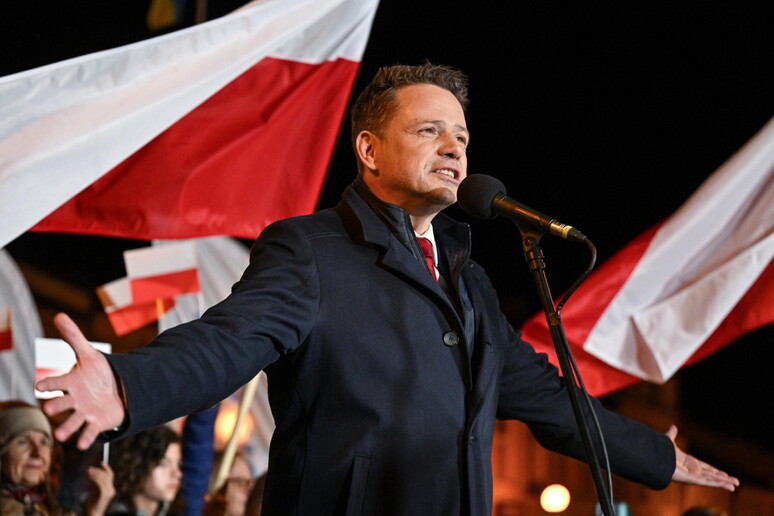News Flash

WARSAW, May 19, 2025 (BSS/AFP) - Pro-EU Warsaw mayor Rafal Trzaskowski scored a narrow win in round one of Poland's presidential election but faces an uphill struggle after right-wing and far-right candidates won a majority of votes, analysts said on Monday.
Trzaskowski, who is backed by the governing centrists, will face nationalist historian Karol Nawrocki in the June 1 run-off vote.
An overall victory for Trzaskowski as head of state would be a boost for the centrist government led by former European Union leader Donald Tusk, which has been at loggerheads with the current nationalist president.
A Nawrocki win would probably extend the political deadlock in the Central European country of 38 million people, which is a member of NATO and the EU.
Analysts predict that fresh parliamentary elections may have to be called.
With all ballots counted, the national election commission said Trzaskowski won 31.36 percent against 29.54 percent for Nawrocki in Sunday's first round.
The razor-thin margin between the two sets the stage for a fierce electoral campaign in which each will try to woo the supporters of the many third-party candidates.
The far-right showed strong gains, with its two candidates receiving a combined 21.15 percent.
"This brings Nawrocki into a favourable position... He will have a larger pool of votes to draw upon," analyst Piotr Buras said.
That suggests the key to the run-off will be whether the far-right's supporters decide to cast their ballots for Nawrocki in the second round.
"The campaign in the next two weeks will be very polarising and brutal -- a confrontation of two visions of Poland: pro-EU, liberal and progressive versus nationalist, Trumpist and conservative," said the head of the Warsaw-based ECFR think tank.
Poland's president is commander-in-chief of the armed forces, steers foreign policy and can introduce and veto legislation.
The two run-off candidates have diverging views on abortion and LGBTQ rights.
The election also comes at a fraught moment for Europe as Russia's invasion of Ukraine drags on and ties with Washington are under strain.
- 'De-globalisation' -
Turnout was over 67 percent, which is high for Poland, though lower than the record turnout of the 2023 general election that brought the centrists to power. Warsaw voter Iwona Lon said: "We had enormous expectations after that last election and they were dashed a bit."
"I think it's a signal for the government that people have lost patience," the 47-year-old banker told AFP.
Tusk's administration has been prevented from easing Poland's stringent abortion laws and introducing other changes by President Andrzej Duda's power of veto.
The governing coalition is hopeful a Trzaskowski victory would enable it to carry out undelivered campaign pledges.
On Monday, both run-off candidates immediately went for voters' stomachs. Trzaskowski handed out sweet rolls while Nawrocki offered doughnuts.
Nawrocki said he was "bursting with energy and optimism" after earlier calling on Slawomir Mentzen's supporters to back him in the run-off.
Far-right candidate Slawomir Mentzen, the multi-millionaire entrepreneur who came in third in the ballot, is a eurosceptic libertarian staunchly opposed to abortion and migrants.
He has accused the country's one million Ukrainians of taking advantage of Poland.
Trzaskowski said: "I'll try to persuade all those who voted differently that it is worth casting a ballot for a normal Poland and not a radical Poland."
He added that he would focus "especially on the young generation".
Young voter Kacper Karwacki said the far-right's gains in Poland were "very worrisome" but to be expected.
"If you look at countries nearby -- Germany, France, Britain -- the far-right is gaining ground everywhere, benefitting from social issues," the 24-year-old student told AFP.
Analyst Marcin Zaborowski said: "Poland is simply part of this trend. That is probably a consequence of new generations coming to vote... People who do not think that you need to fight for democracy."
The fellow at think tank Globsec also ascribed the far-right gains to the de-globalisation promoted by US President Donald Trump.
"The mood overall seems to be that the costs of globalisation are too big. And people want to go back to what is local, what is familiar," Zaborowski told AFP.